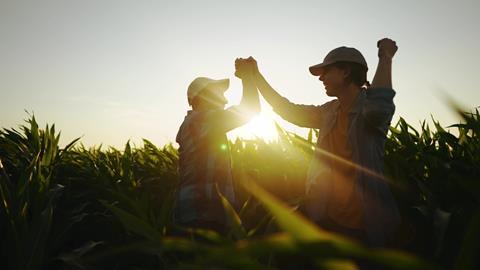Report highlights global progress in responsible farming practices
GlobalGAP has released its 2023 annual report ahead of the GlobalGAP Summit, which takes place on 10-12 September in Warsaw.

The report highlights the organisation’s ongoing efforts and contributions in providing tools that support diverse sector challenges, including supply chain transparency, responsible water use, and capacity-building initiatives. These efforts aim to assist producers and communities in adopting safer and more responsible farming practices globally.
“2023 brought the farming industry closer to transformational change – with the agriculture, aquaculture, and floriculture sectors playing a growing role in global climate ambitions,” the organisation said in a press release.
“Stakeholders throughout the supply chain are looking to make vital progress on sustainability goals, including producers who must adjust their practices and provide increased transparency on their processes. At GlobalGAP we are pleased to provide our stakeholders with innovative, efficient and smart tools to combat global farming challenges.”
There are 194,777 producers in 137 countries with GlobalGAP-certified production. In total, 4.553m hectares of non-covered and covered plant production are currently GlobalGAP certified. This is calculated based on the productive area certified under the IFA plants scope (all product categories), as well as the Crops for Processing standard and the Harmonised Produce Safety Standard.
In addition, 4,274 supply chain companies are certified to the GlobalGAP Chain of Custody (CoC) standard. This standard safeguards the segregation of products originating from certified production processes from those that do not and helps supply chain stakeholders understanding and tracing back their supply chains. Since 2022, the number of supply chain companies applying the CoC standard has increased by 27.9 per cent.
The report also sets out the evolution of GlobalGAP’s Sustainable Programme for Irrigation and Groundwater (Spring), the second version of which was launched in the second half of 2022.
The solution, which has received recognition from both the World Wildlife Fund (WWF Spain) and the Sustainability Initiative Fruit and Vegetables (SIFAV), allows producers worldwide to implement more efficient farm-level management of water resources which can contribute to combatting the challenges of droughts and water scarcity.
Uptake of Spring has risen by 100 per cent since 2022, and there are now 11,600 producers under assessment worldwide. GlobalGAP said the formation of the Environmental Sustainability Working Group is a further step in this direction as the organisation is currently developing sustainable, targeted and advanced solutions for the protection of the environment and the planet’s limited resources together with stakeholders from various sectors.
When it comes to developing and strengthening the skills and processes of producers around the world, the team behind the GlobalGAP standards contributes to a wide variety of capacity building projects around the world.
“These projects, conducted in tandem with local partners, can strengthen the agricultural sector by developing and upscaling local expertise and connecting them to regional and international markets,” the organisation said.
In addition, the GlobalGAP Registered Trainer programme counted 291 registered trainers in 67 countries in 2023. Registered Trainers are independent farming experts who are supported by the GlobalGAP Secretariat to train producers and other interested parties on the implementation of GlobalGAP standards and add-ons.



